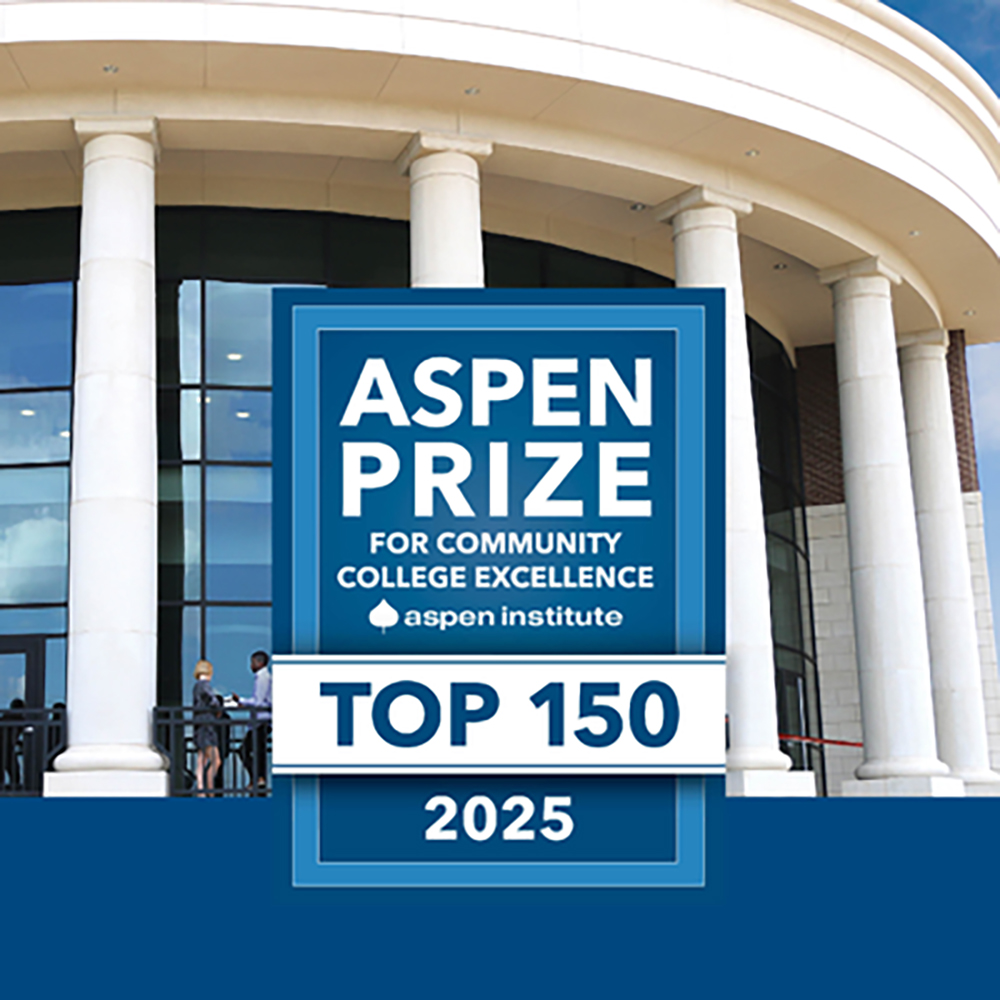
Aspen Institute names Southcentral Kentucky Community and Technical College as a Top 150 U.S. Community College Eligible for 2025 Aspen Prize

BOWLING GREEN, KY (11/3/2023) Once again, Southcentral Kentucky Community and Technical College (SKYCTC) is named one of 150 institutions eligible to compete for the $1 million Aspen Prize for Community College Excellence, the nation's signature recognition of high achievement and performance among two-year community colleges. The colleges selected for this honor stand out among more than 1,000 community colleges nationwide as having high and improving student success and equitable outcomes.
“SKYCTC's unwavering dedication to student achievement is deeply engrained in our College culture,” says Dr. Phillip Neal, President of SKYCTC. “I continue to be amazed at the outstanding commitment our faculty and staff to improving the lives of others. So, we are thrilled that by selecting us as one of the nation’s top 15% of community colleges, the Aspen Institute has, again, acknowledged our relentless pursuit to excellence in higher education and workforce development.
SKYCTC is one of six community colleges selected from Kentucky on the list this year. The other Kentucky colleges are Ashland Community and Technical College, Gateway Community and Technical College, Hazard Community and Technical College, Madisonville Community College, and West Kentucky Community and Technical College.
The 150 eligible colleges have been invited to submit student success data and narratives about strategies to achieve better and more equitable student outcomes as the next step in an intensive review process that culminates in the naming of the Aspen Prize winner in spring 2025.
SKYCTC has served the region for more than 80 years and has grown into a comprehensive community college offering 148 degree, diploma, and certificate options. The College provides students with vital job training and continuing higher education opportunities, achieving high graduation and transfer rates, and providing strong employment results for its graduates. Flexible work-and-learn innovations help support working learners, while SKYCTC’s many financial aid options mean that most students do not have to take out student loans to pay for college.
The Aspen Prize spotlights exemplary community colleges to drive attention to colleges achieving post-graduate success for all students and is a central way the Aspen Institute researches highly effective student success strategies that are shared with the field. The eligible colleges represent the diversity and depth of the community college sector. Located in urban, rural, and suburban areas across 30 states, these colleges serve as few as 169 students and as many as 49,619.
"The Aspen Prize is rooted first and foremost in an assessment of whether colleges are walking the walk," said Josh Wyner, executive director of the Aspen Institute College Excellence Program. "As community colleges face enrollment variations, enroll students with pandemic-related learning loss, and graduate students into a rapidly changing labor market, it is easy to lose track of what matters most. The best community colleges are continuing to focus on advancing the core mission: making sure as many students as possible graduate with credentials that lead to fulfilling careers and reflect the development of diverse talent that communities, states, and our nation need."
When community colleges are an essential contributor to the nation's success, student outcomes vary substantially among institutions. The Aspen Institute measures those variances using multiple data sources and honors colleges with outstanding achievement in six critical areas: teaching and learning, certificate and degree completion, transfer and bachelor's attainment, workforce success, equitable access to the college, and equitable outcomes for students of color and students from low-income backgrounds.
"These 150 colleges have achieved high and improving levels of student success for all students, including those who are often failed by our institutions," Wyner said. "We're excited to learn over the coming months how they achieved that success so we can share the most impressive practices with others in the field."
In this first round, eligibility for the Aspen Prize is based on publicly available data. Colleges must show strong, improving, and equitable student outcomes in first-to-second year retention, credentials awarded, and completion and transfer rates. Nationwide, about 15 percent of community colleges have been invited to apply (150 of just under 1,000 public two-year colleges assessed for Prize eligibility). The full list can be accessed on the Prize homepage.
# # #
The Aspen Institute College Excellence Program supports colleges and universities in their quest to achieve a higher standard of excellence, delivering credentials that unlock life-changing careers and strengthen our economy, society, and democracy. We know it takes visionary college leaders to lead scaled, sustainable reforms, and we make it our mission to equip them with the knowledge, skills, and research-backed tools to inspire change, shift practice, and advance the capacity of colleges to deliver excellent and equitable student outcomes. For more information, visit our website and follow us on LinkedIn and Twitter.
The Aspen Institute is a global nonprofit organization whose purpose is to ignite human potential to build understanding and create new possibilities for a better world. Founded in 1949, the Institute drives change through dialogue, leadership, and action to help solve society's greatest challenges. It is headquartered in Washington, DC, and has a campus in Aspen, Colorado, as well as an international network of partners. For more information, visit www.aspeninstitute.org .
Attachments
http://app.readmedia.com/news/attachment/190848/Aspen_Prize_TOP_150.png
